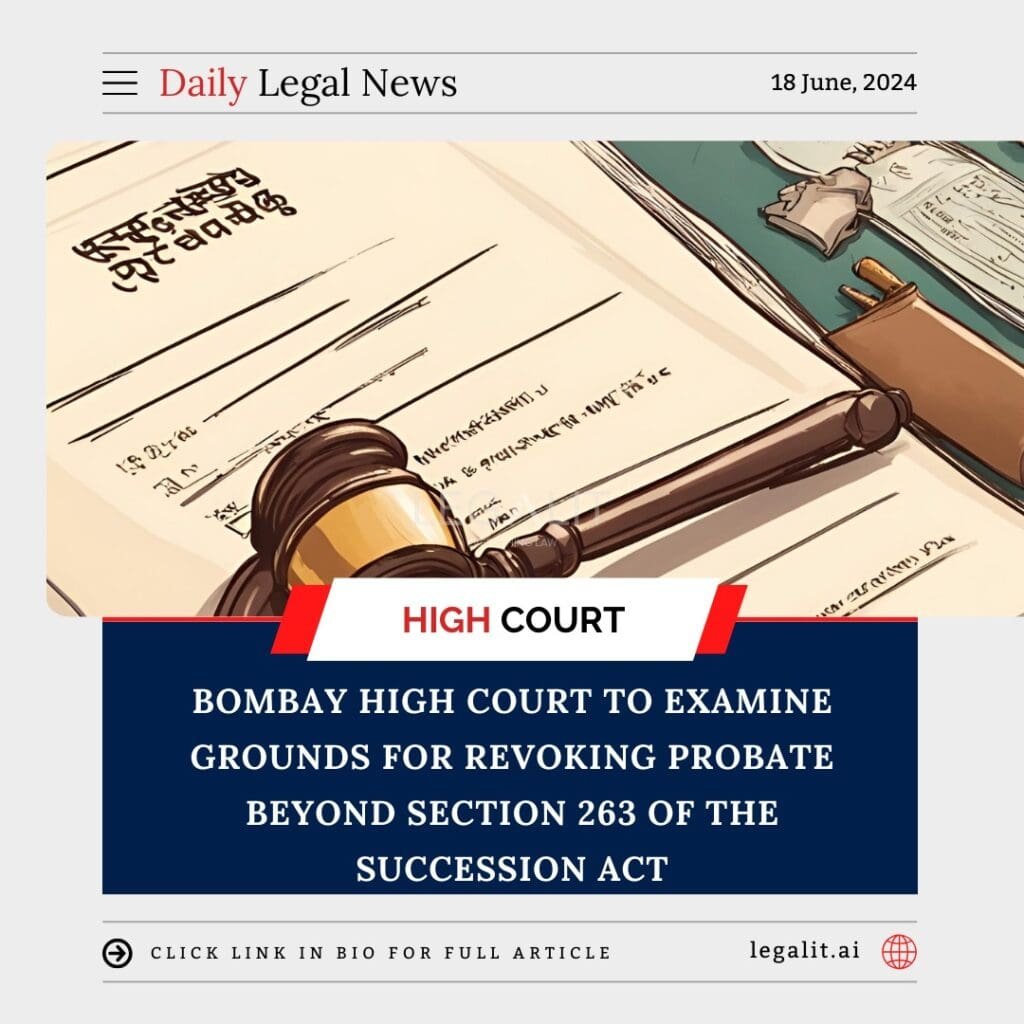
The Bombay High Court is set to examine whether the revocation of probate can be considered on grounds not explicitly covered by Section 263 of the Indian Succession Act. This section allows for the revocation or annulment of probate or letters of administration for “just cause,” which includes scenarios where the grant was obtained fraudulently or by concealing material facts.
In a recent case, the High Court has been asked to look beyond the specified grounds in Section 263 to consider other potential justifications for revocation. This examination is crucial because traditionally, probate matters have been strictly governed by the provisions of the Succession Act, limiting the scope of revocation to the causes outlined within the section.
The legal framework under Section 263 stipulates that probate can be revoked if the grant was obtained by fraud, undue influence, or by concealing facts, or if it was granted in ignorance of a rightful objection. However, there are arguments suggesting that the scope of revocation should not be rigidly confined to these grounds if the justice of the case demands otherwise.
Recent rulings, such as those from the Delhi High Court and the Supreme Court, emphasize that the probate court holds the exclusive jurisdiction to handle matters of probate revocation. The courts have reiterated that civil courts cannot decide on the validity of probate grants, reinforcing the specialized nature of probate proceedings (Prime Legal, LawBeat).
This examination by the Bombay High Court could potentially expand the interpretation of “just cause” under Section 263, allowing for greater flexibility in addressing grievances related to the grant of probate. This would mark a significant shift in how probate revocations are approached, potentially offering a broader scope for justice in cases where traditional grounds under Section 263 do not fully address the issues at hand.